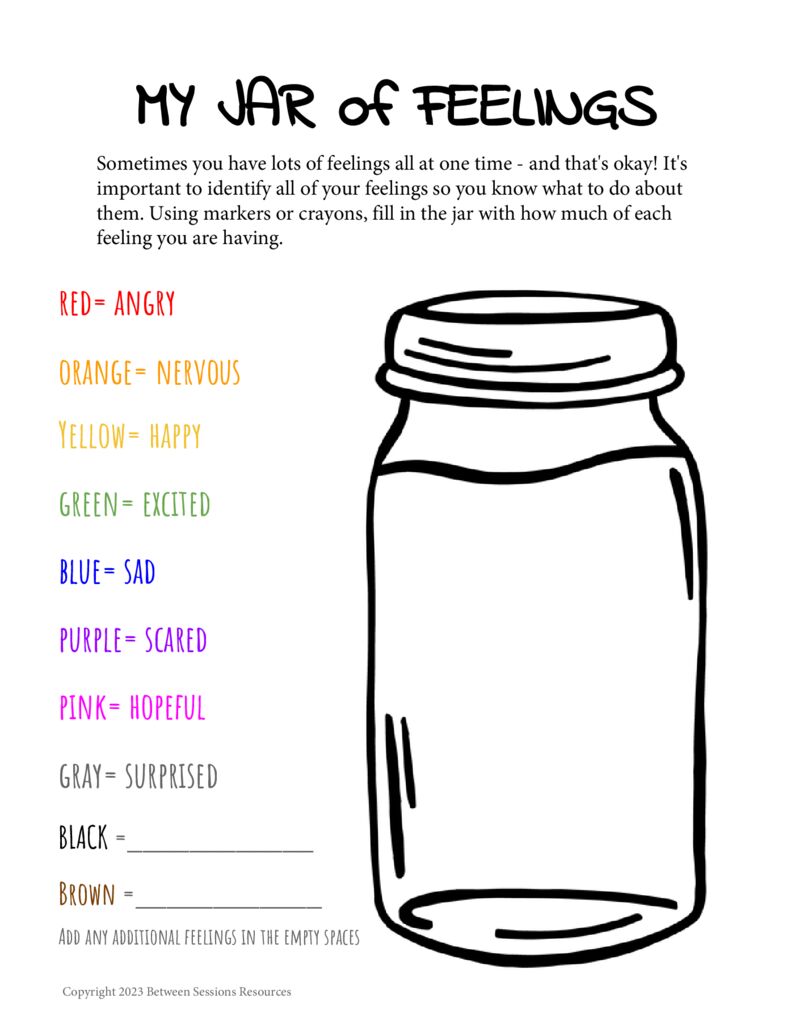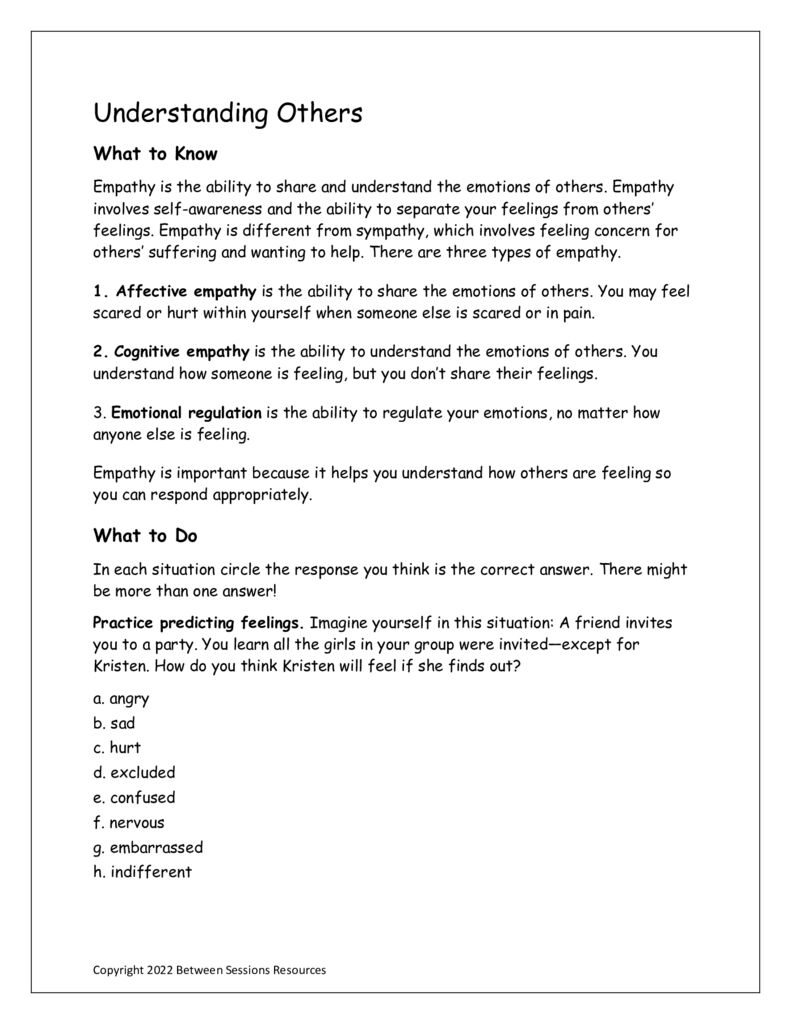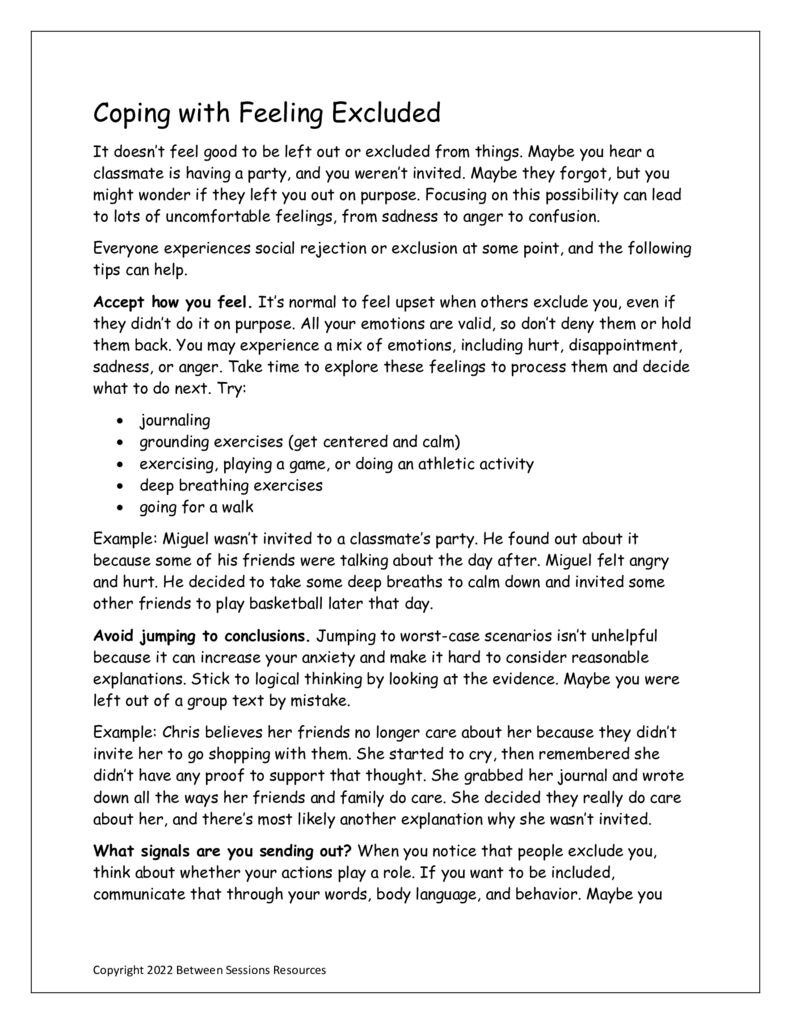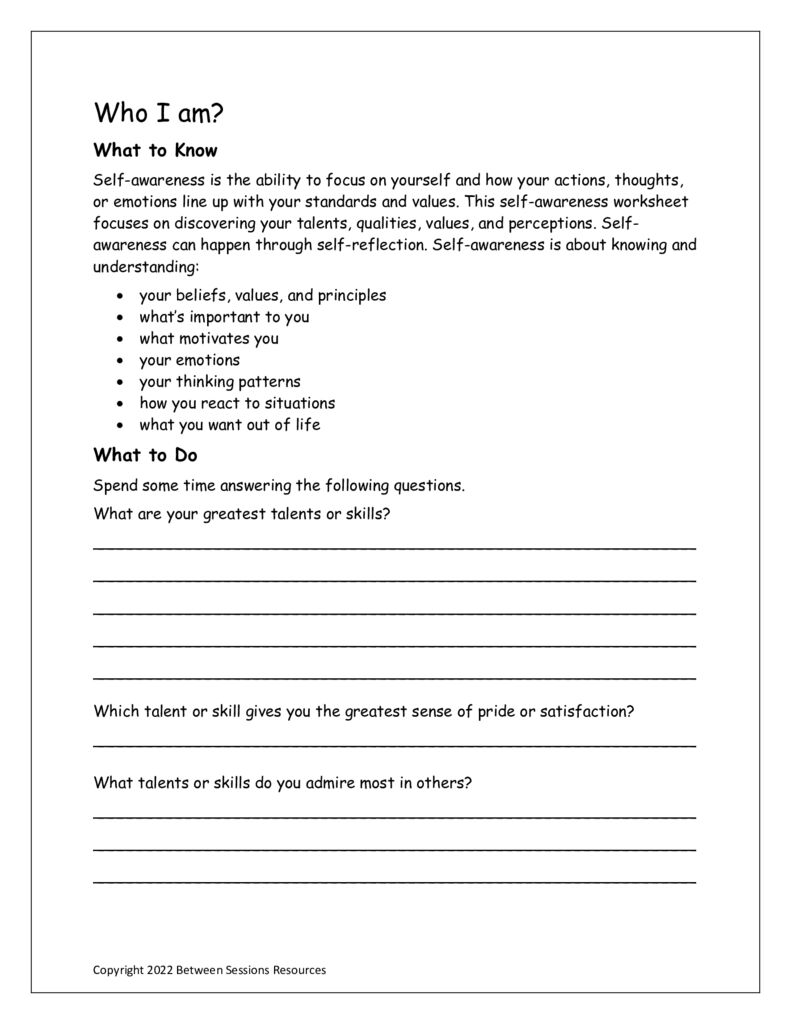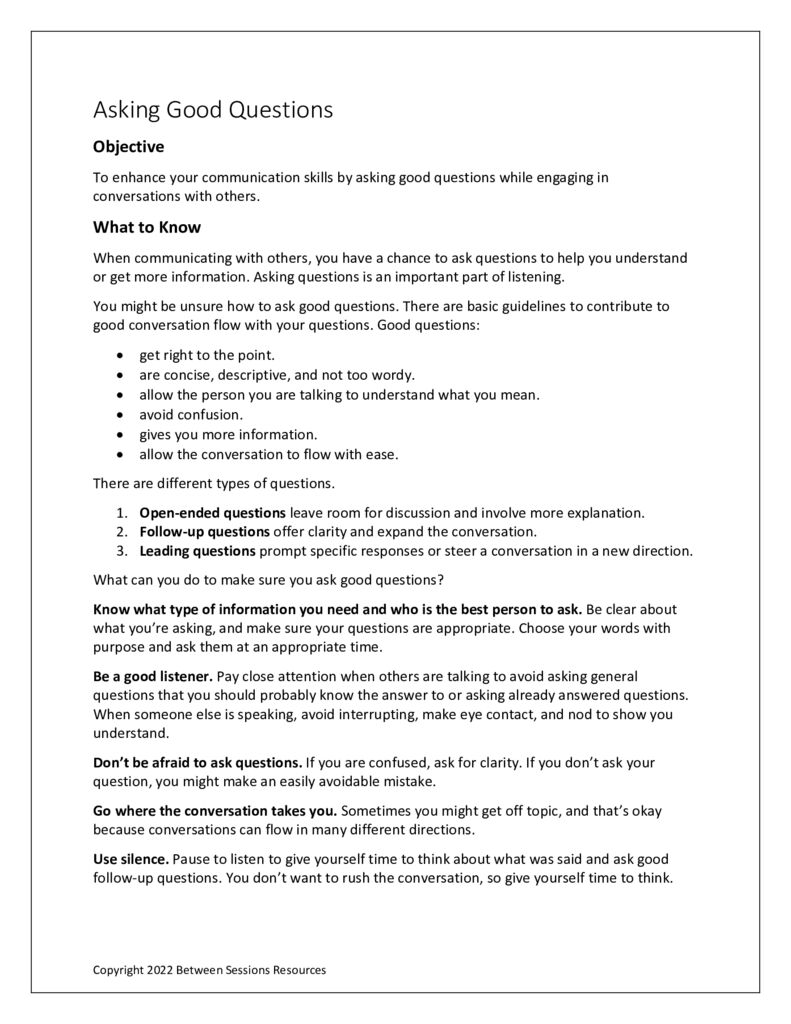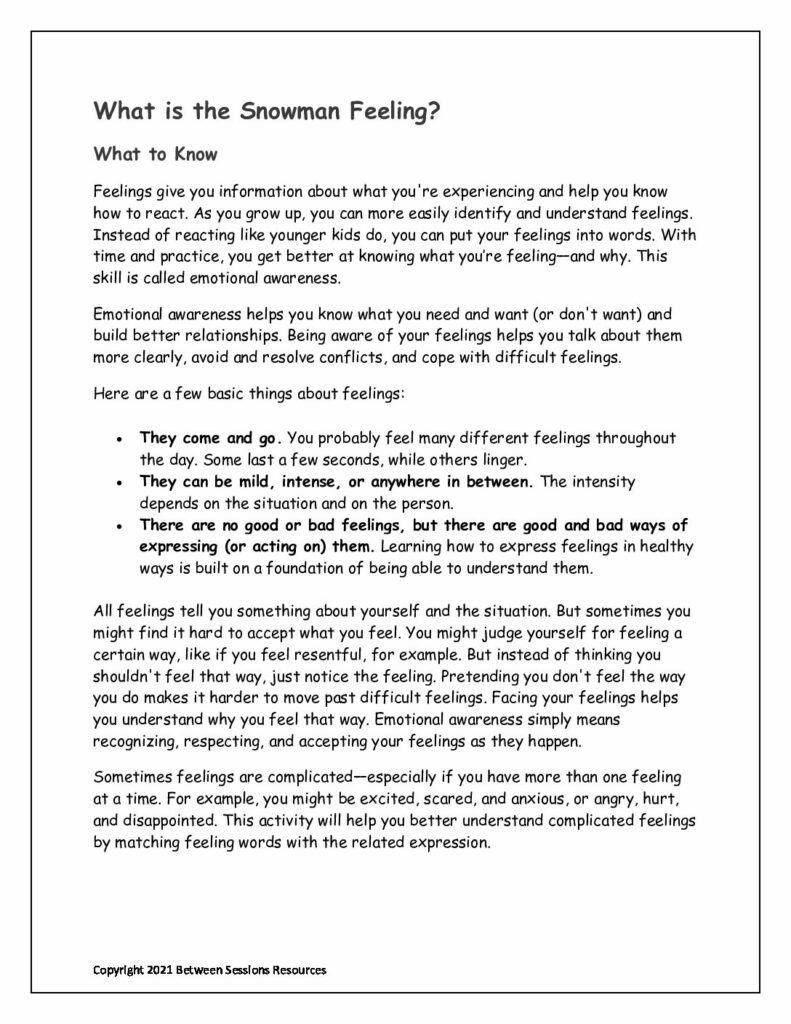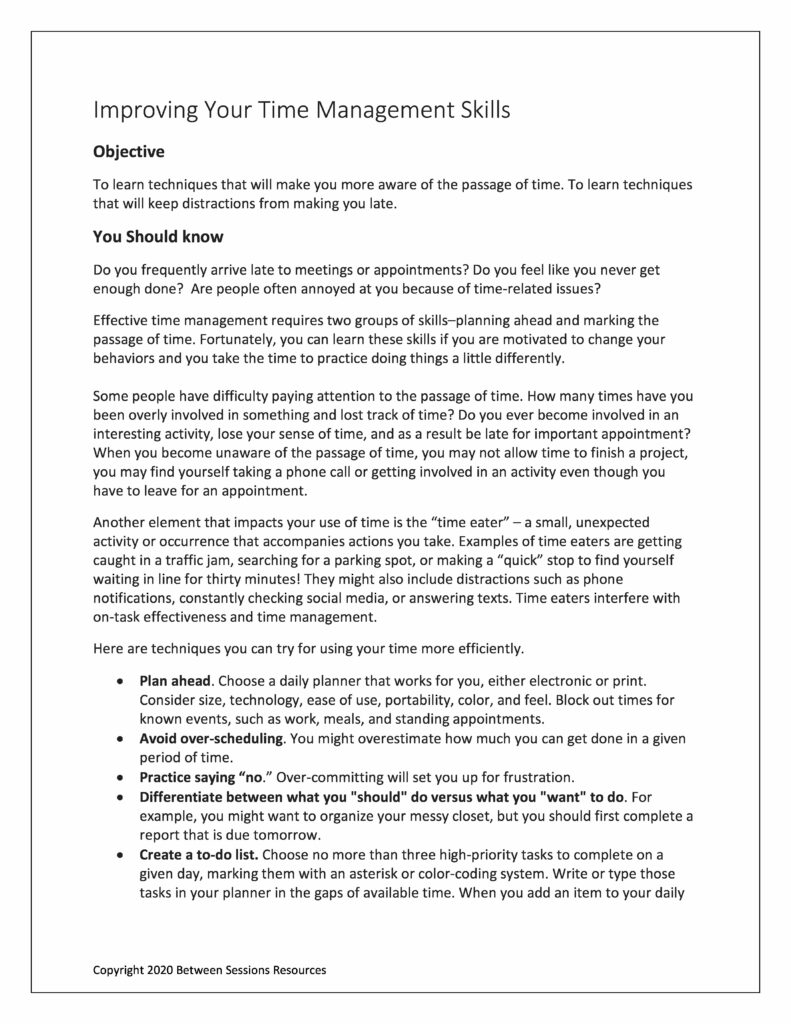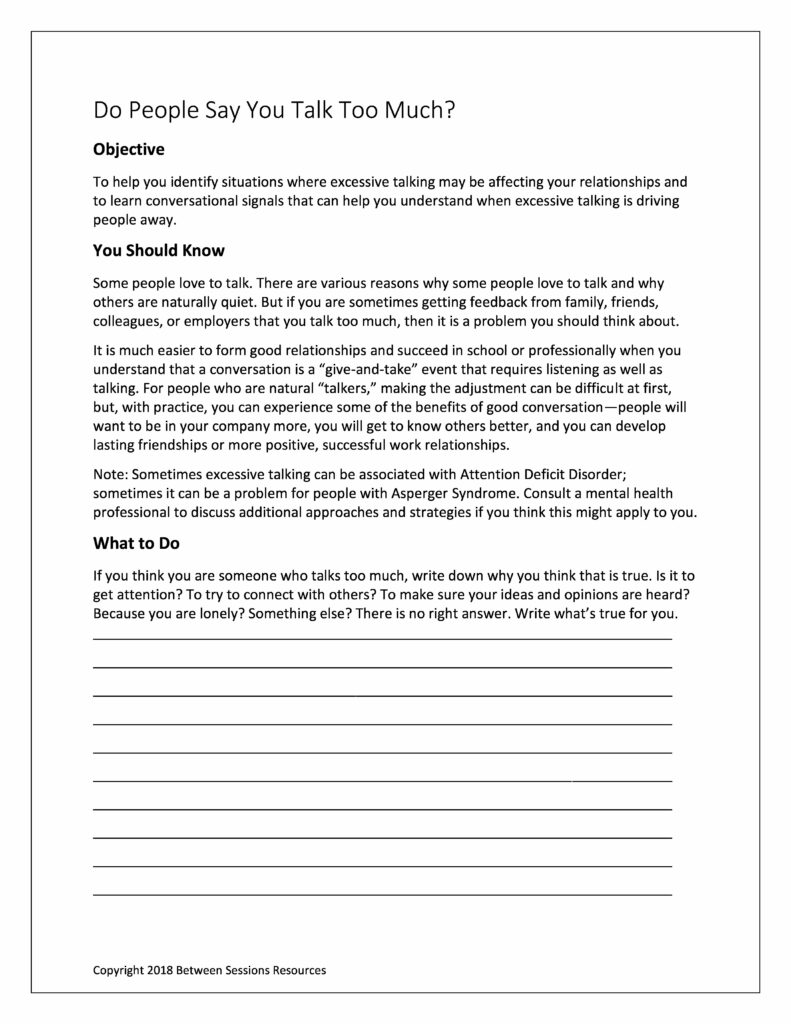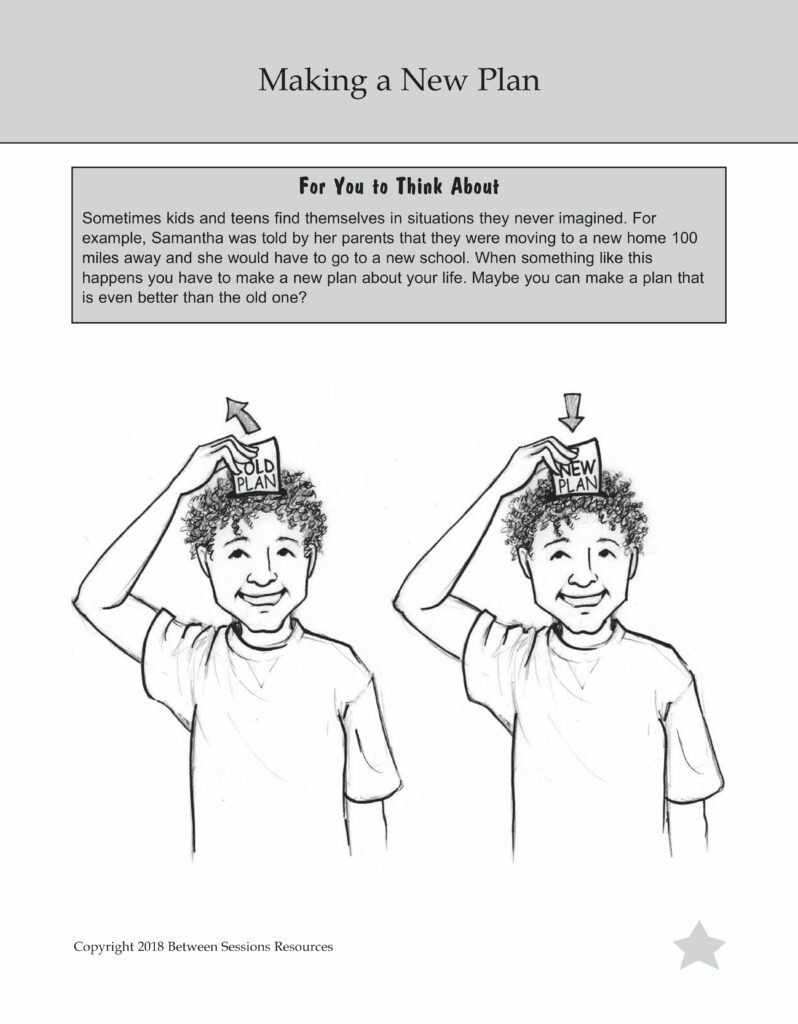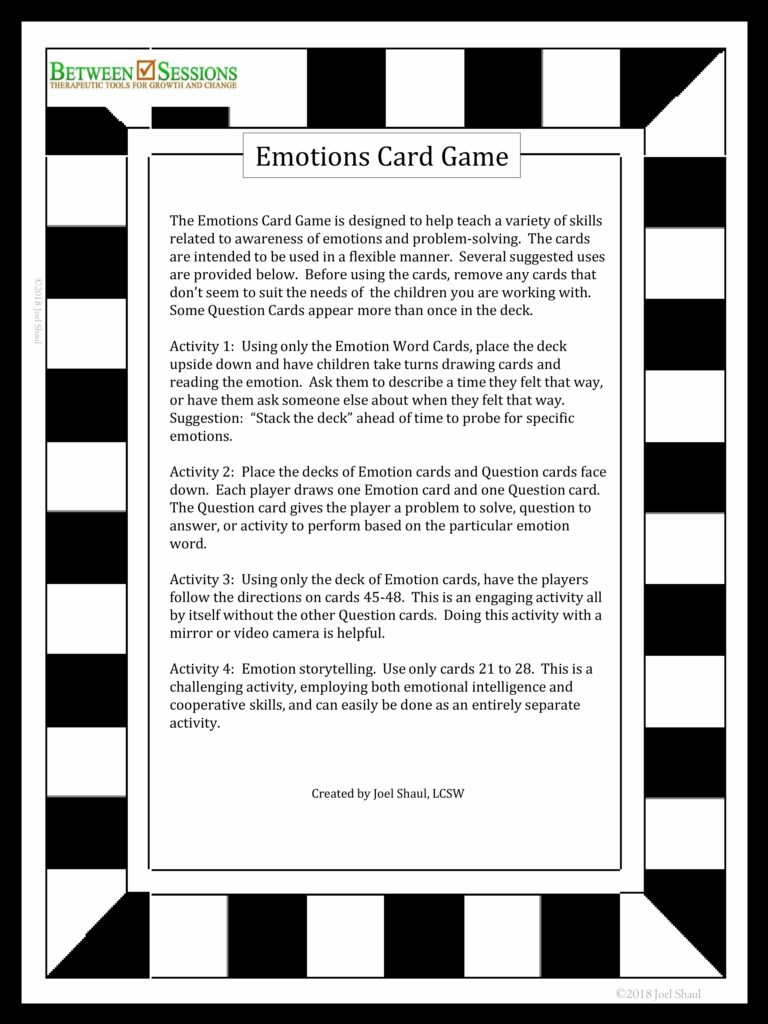Kids and teens can use this jar to express their feelings. (1023. emotional regulation, feelings, communication)
This worksheet teaches teens the different types of empathy and helps them understand how to increase their empathy by reading body language, being compassionate, and listening carefully to others. (1222, empathy, behavior problems, social problems, Asperger Syndrome, ASD)
This worksheet is designed to help teens deal with being excluded. It instructs them to accept their feelings, avoid jumping to conclusions, communicate their needs, pay attention to their strengths, and more. Questions help teens explore the times they have felt excluded and think about what they could have done differently. (1222, social skills, loneliness, peer pressure)
This worksheet asks teens to think about their identity, including their strengths and weaknesses, and their best qualities, skills, or talents they want to develop. It also asks teens to consider how other people see them, but in their public life and private life. (1122, identity, self=awareness, self-esteem, self-efficacy)
This worksheet deals with the type of communication many people take for granted-asking good questions. The Worksheet review the 3 basic types of questions and 10 points on how to ask good questions that move a conversation forward and make it interesting for another person. (0620, social skills, conversational skills, communication)
This worksheet helps young teen explore their feelings and the nature of mixed feelings. (1221, middle school, feelings, emotions, emotional intelligence)
This worksheet helps people with time management problems become more aware of the passage of time and the distractions that can become “time-eaters.” It gives specific techniques to use to help people plan their time more effectively. (ADHD, ASD, time management, 0620)
This worksheet is designed to help people identify situations where excessive talking may be affecting their relationships and to help them learn conversational signals that can aid in more appropriate give and take conversations. (ADHD, Asperger Syndrome, relationships, social skills, 0219)
This worksheet directs children to be flexible in their thinking and to come up with a new plan if an old one doesn’t work. A great conversation starter for introducing the concept of flexible thinking. (ADHD, Asperger Syndrome, resilience, 1118)
The Emotions Card Game is designed to help teach a variety of skills to children and teens related to awareness of emotions and problem-solving. The cards are intended to be used in a flexible manner. The instructions describe four different games than can be played. 27 pages (1118, emotional intelligence)

